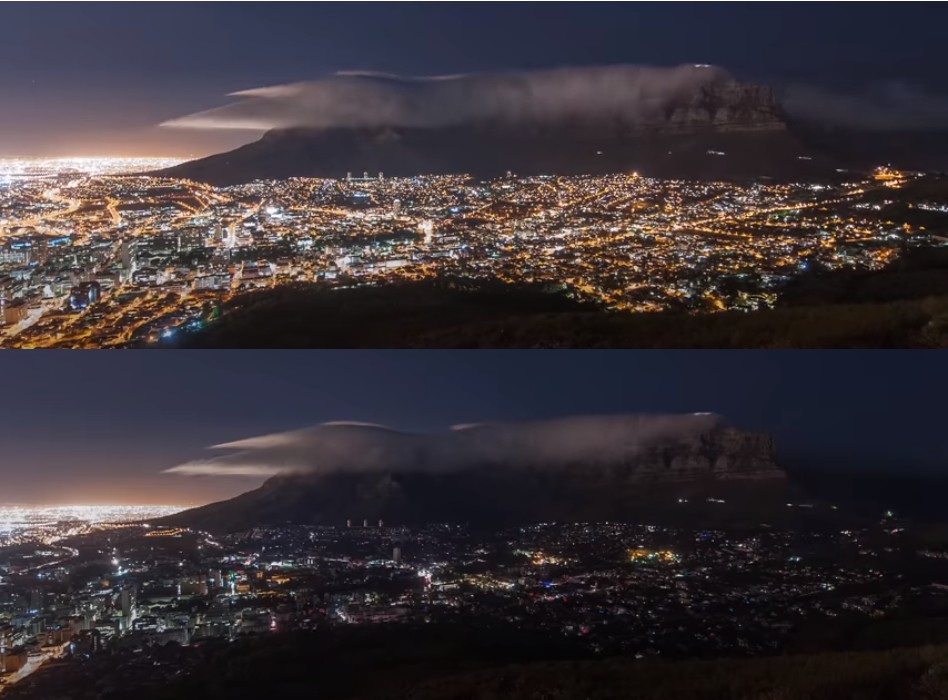Resources are scarce – we know this much. So what can be interesting is seeing how people deal with that. We’re lucky enough to be on holiday in South Africa for the 2nd time in 12 months, and there’s a thing going on here which, frankly, I don’t know how Australia or the UK would cope with.
I don’t want to go into the politics of it, because I neither understand it nor have a dog in the fight – but for whatever reason the South African national electricity generation capacity is less than the electricity demand[i]I completely do not understand why the only thing I’ve been motivated to blog about is complaining about electricity, twice in a row now. That’s growing up I suppose.. So the way they deal with this – and have done since 2007 – is to “shed some of the load”. The load is the amount of power the grid demands, and this exceeds the capacity. How do they shed the load? They turn the power off!
It’s not abrupt/sudden like a blackout – it’s done based on a published schedule, and rotated around the country so that the balance is reasonably even.
Last time we were here I think they were in Stage 3 or 4 measures (Stage 3 is 18 hours of power off per 4 days). This time it’s stage 6 (36h over 4 days).
Tangibly this means there’s 8h a day where there’s no mains power – they run them in 2-hour blocks, and in stage 6 the schedule seems to be 2x separated 2h periods and one block of 4 hours.

Of course the people have learned to adapt – as you would, 15 years into this – by providing their own backup generation facilities: be they diesel generators or solar panel and battery arrays. We’re incredibly fortunate in the place we’re staying to be served by the latter and the tangible outcome is that lower-draw appliances (TV, internet, phone chargers, lights) can be used constantly and it’s just the larger concerns like cooking and washing which need to be timed.
The schedule above shows that during our stay in the first week there was a 4-day period where the power was down from 8am til 10am, and though we’ve survived through it reasonably unscathed you can’t underestimate how gruelling it is to not be able to make a coffee[ii]Smarter players in this situation have also moved to gas stoves in their homes to free themselves from the loadshedding shackles – an opposing situation to what we’re used to in the UK, … Continue reading during this crucial time.[iii]Today it was 6am-8am, but helpfully MinnieBStanding chundered at 6:10am and woke us up early, so the absence of coffee was deeply felt.
Anecdotally the extent of all this is proving challenging – battery systems installed to cope with stage 3 and 4 are finding it difficult to cope with later stages[iv]something about complete discharge/charge cycles eroding capacity faster than expected? I know fuck all about batteries., and the power utility are discussing stages beyond 8.
To dip into the politics momentarily – in the UK our power stuff seems to be a semi-convoluted mix of ownership and a split between power generation companies, and billing companies. Whereas from what I understand here in SA the whole thing’s government-owned. Where we address supply issues with increased unit prices [v]well, I don’t think it’s as simple as that, either – UK power prices are somehow tied into a 3-month forecast of the unit price of gas, here they seem to have clocked that you can’t drag more money out of people who ain’t got it… so you just give them less for the money they’re already paying. Again, anecdotally, I’m told that in SA you pay more for connection to the power grid than you do for the actual units used.
From reading local news the city of Cape Town appears to be undertaking moves to break away from the national situation by commissioning its own power generation facilities to address the local regional shortfalls.
Perhaps it’s more acceptable over here because they don’t have the heating issue to contend with like we do in Britain. Just blows my mind though. No electricity for 8h a day. Wow.[vi]I took the images in the feature image from a YouTube timelapse video of the city of Cape Town to highlight the effect of loadshedding, and also illustrate what self-generation capacity was in place … Continue reading
Footnotes
| ↑i | I completely do not understand why the only thing I’ve been motivated to blog about is complaining about electricity, twice in a row now. That’s growing up I suppose. |
|---|---|
| ↑ii | Smarter players in this situation have also moved to gas stoves in their homes to free themselves from the loadshedding shackles – an opposing situation to what we’re used to in the UK, where gas hobs are worse than having Hitler staying in your spare room. |
| ↑iii | Today it was 6am-8am, but helpfully MinnieBStanding chundered at 6:10am and woke us up early, so the absence of coffee was deeply felt. |
| ↑iv | something about complete discharge/charge cycles eroding capacity faster than expected? I know fuck all about batteries. |
| ↑v | well, I don’t think it’s as simple as that, either – UK power prices are somehow tied into a 3-month forecast of the unit price of gas |
| ↑vi | I took the images in the feature image from a YouTube timelapse video of the city of Cape Town to highlight the effect of loadshedding, and also illustrate what self-generation capacity was in place – that video was from 7 years ago |




